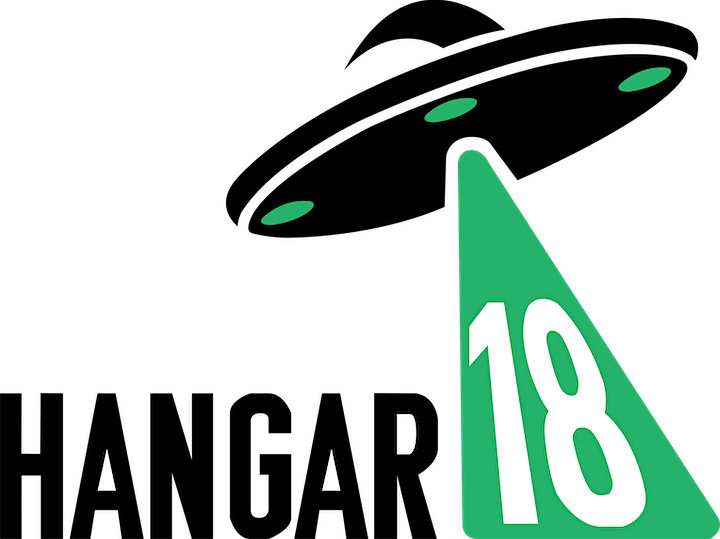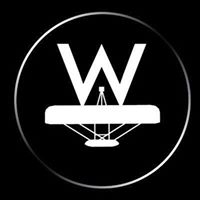Hangar 18 SUPER Collider - A Deep Dive into the Air Force Software Factory
Schedule
Tue Aug 15 2023 at 09:00 am to 04:30 pm
Location
Wright Brothers Institute - 444 | Dayton, OH

About this Event
SHORT ADVERTISEMENT:
Hangar 18, an AF software factory, is proud to host a one day User Experience (UX) event at the Wright Brothers Institute on Tuesday, August 15, 2023. Get ready for a day filled with UX presentations from easy-to-understand basics all the way to high level cognitive systems presented in an easy-to-understand fashion by experts in the field. With plenty of time for questions, and round robin panels planned, it will be a great opportunity to have UX Design thoroughly demystified for you and your teams. Not able to show up in person? Don’t worry! We’ll also be hosting the presentations online for those who are out of town.
OVERVIEW:
This Collider will focus on sharing target communities with Hangar 18’s approach to software development discovery phase and design process. The collider will encompass a full days’ worth of events; the morning portion will be a series of presentations by Hangar 18 and other guest presenters from WBI and AFIT. The afternoon portion will provide opportunity panel discussion between subject matter experts and attendees. Topics proposed: Genesis UX (centerpiece for collider), Cognitive Systems Engineering (CSE), Introduction to Requirements and Managing Requirements.
Expected Outcome:
1. Community outreach providing understanding of Hangar 18’s comprehensive approach to discovery and design using Genesis UX Design Studio, and how it compliments an Agile approach to technology development.
2. Information and process sharing with other organizations on their approach to discovery and design.
3. Educate team members and organizational stakeholders of the benefits of UCD/CSE approach and early engagement.
AGENDA:
- Opening Remarks/Zoom Admin (WBI, James Masonbrink) – 9:00am - 9:05am
- Welcome (Hangar 18/AFRL/RX, Matthew Jacobsen) – 9:05am - 9:10am
- Genesis UX (Hangar 18/ARS, Jeremiah Spoon) – 9:10am – 10:00am
Keynotes/Takeaways: As the tip of the spear for the Hangar 18 UX Team, Jeremiah will be presenting the foundational aspects of User Experience Design using easy to understand language. Zero experience with User Experience Design or User Interface Design will be necessary to understand the foundational presentation. By the close of the presentation, Jeremiah and his team will have attendees up to speed on the methodologies & goals of UX Teams and why they're such an important part of good product development.
Presenter Bio: Since 2000, Jeremiah Spoon has been immersed in the world of application & web development. Now with 23+ years of experience, Jeremiah brings a pragmatic approach to User Experience Design with a focus on using highly targeted value-based toolsets to achieve highly targeted results. Jeremiah works as a Senior UX Designer under the Hangar 18 banner from Applied Research Solutions (ARS).
- Cognitive Systems Engineering (Hangar 18/Mile 2, Julio Mateo) – 10:10am – 10:50am
Keynotes/Takeaways: Cognitive Systems Engineers support design by ensuring that teams build systems that: a) are grounded in a deep understanding of the work domain, b) integrate seamlessly with their environment, c) support the cognitive work of users, and d) successfully achieve their intended purpose. Cognitive Systems Engineering plays a key role in the design of systems that address the right problem, enhance overall work performance, and that practitioners embrace and use. In this presentation, we will introduce some of the techniques that Cognitive Systems Engineers use (e.g., cognitive interviews, problem characterization) and the artifacts they develop (e.g., functional decomposition, process workflows). We will also illustrate how these techniques and artifacts contribute to designing better, more effective systems.
Presenter Bio: Julio C. Mateo is a Cognitive System Engineer at Mile Two. Julio helps teams develop a deep understanding of the work domains for which they are designing tools. He elicits knowledge from domain practitioners, and represents, synthesizes, and models the cognitive work involved in current and envisioned states. Julio has coached design teams on how to more effectively execute Mile Two’s Approach across a range of software-development projects. Before joining Mile Two, Julio worked at 361 Interactive where he focused on understanding, training, assessing, and supporting complex cognitive skills (e.g., cross-cultural competence, systems thinking) for warfighters in the U.S. Army and Navy. Julio also worked on the design and development of a tool to improve organizational efficiency through collaborative crowdsourcing. Julio earned his M.S. in Human Factors Psychology at Wright State University in 2007.
- CDPL process (WBI, Tim Strange) - 11:00am – 11:30am - Keynotes/Takeaways: TBD
- Introduction to Requirements (AFIT/LSS, Ronald Phipps) – 11:30am-11:50am
Keynotes/Takeaways: Ron covers the 14 Characteristics and the 41 Rules for writing quality requirement statements. Two simple, but extremely effective techniques, Elicitation and Parsing, will be explained and examples used to illustrate the steps for each technique. By thoroughly assessing and properly translating user need statements one can create high quality technical requirement statements. These statements and their comprehensive context can then be used to create Model-based systems engineering diagrams.
Presenter Bio: Ronald (Ron) Phipps is the Systems Engineering Lead for the Systems and Software Engineering Department, AFIT School of Systems and Logistics. He is also the director for the SYS 282, Management of the Systems Engineering Process course and the WKSP 0725, Writing Quality Requirement Statements workshop. Prior to his AFIT service, Ron served in a variety of roles in aircraft, space, and command and control programs including a tour as Chief Engineer for the Space-Based Infra-Red System (SBIRS) Low program and Program Manager for the Ground Theater Air Control System (GTACS). Ron frequently uses his experiences to help illustrate how systems engineering in R&D, Acquisition, and Sustainment plays out in the real world.
- Management Requirements using Systems Modeling Language (AFIT/LSS, Bryan DeHoff) -11:50am – 12:10pm
Keynotes/Takeaways: Using SysML and the CATIA Magic Systems of Systems Architecture software, this presentation will provide an understanding on how SysML approaches requirements and how to read and utilize SysML Requirement Diagrams and Tables for digital Requirements Management.
Presenter Bio: Bryan DeHoff is a contract faculty with AFIT School of Systems and Logistics, Systems and Management Department for the past year. He is part of the department’s team developing instructional materials and learning paths in support of the Air Force’s Digital Material Management transformation. He has recently been supporting the AgilePod IPT in AFLCMC as a systems engineer staff member, and prior to that he has 25 years of supporting AFRL, primarily Materials and Manufacturing, but also Rocket Propulsion at Edwards, RQR.
- Lunch Break – 12:10am – 1:40pm (Bring a Brown Bag or a list of amazing restaurants will be provided)
- Fitting modern discovery and design into the broader technology lifecycle (AFRL/RX, Matt Jacobsen)– 1:40pm-2:25pm
Keynotes/Takeaways: The introduction of UX into the software engineering lifecycle is viewed by some as a disruption of orthodox requirements management and modeling practices. As a result, some teams will choose one or the other approach. Mr. Jacobsen will cover the synthesis of these techniques, incorporating both user needs and technical soundness into a value-added solution. Keeping the users and stakeholders engaged will also be examined from a test, evaluation, and deployment perspective. Finally, the use of UX practices in the development of data products will be examined.
Presenter Bio: Mr. Matthew Jacobsen is a software engineering technical lead in the Materials and Manufacturing Directorate of the Air Force Research Laboratory, where he manages efforts in data and software engineering, data governance, and process optimization. Mr. Jacobsen is leading an internationally recognized software development program within the area of Integrated Computation Materials Science and Engineering (ICMSE). This Air Force-trademarked cyberinfrastructure, called HyperThought(R), employs state-of the-art technologies to provide a complete suite of data management and machine integration capabilities to research and manufacturing organizations around the United States. Mr. Jacobsen has brought this depth of experience to bear in establishing the first formal Software Factory at Wright Patterson AFB, Hangar 18, which is focused on bringing Agile and DevSecOps tools and practices to the Digital Engineering and Digital Transformation community in the Air Force.
- Panel Discussion (Matt Jacobsen, Jeremiah Spoon, Julio Mateo, Tim Strange, Bryan DeHoff, Ronald Phipps) – 2:30pm – 4:00pm
Keynotes/Takeaways: How H18 solve problems and requirements
-- Example problem and how H18 tackled it
-- Discussion and feedback from guests on how they solve their problems and requirements
-- H18 requirements proposal / UX scope
-- Touch points between developers and designers
-- Relaying user design to customers without overwhelming them
-- Testing and Quality Assurance into implementation
-- Pros/Cons in Genesis and CSE. What are the common elements / Blending of Genesis UX and CSE
- Optional Networking Time – 3:45pm – 4:30pm
!! MICROSITE WITH MORE EVENT DETAILS COMING SOON !!

Where is it happening?
Wright Brothers Institute - 444, 444 E 2nd St, Dayton, United StatesEvent Location & Nearby Stays:
USD 0.00
